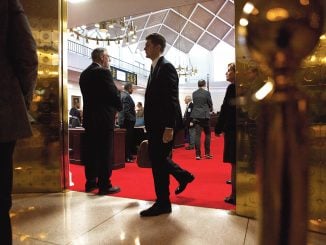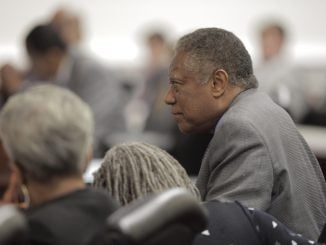
RALEIGH — North Carolina is joining other states as lawmakers consider spending state money to help verify addresses ahead of the 2020 U.S. Census, said Todd Graham, chair of the Census State Data Centers network, which polled states last year on their readiness for the count.
Amid fears that a lack of money will prevent an accurate count, states are gearing up to identify the people the 2020 count is most likely to miss. Residents of isolated rural areas, immigrants and people who just don’t trust the government are among those who tend to be undercounted in the decennial census. The apportionment of U.S. House seats and nearly $590 billion in annual federal funding depend on the count, so state and local officials have a keen interest in making sure their residents don’t fall through the cracks.
The current task for state and local officials is to verify the Census Bureau’s residential address list: Starting in February, the bureau will turn over address lists to states and local governments for double-checking that must be finished within 120 days.
Federal census takers, paid with federal money, are the only authorized counters, so states and localities will have a limited role once the actual counting begins in 2020. However, for the first time, people will be able to fill out census forms online, and state and local officials can help boost response rates by providing internet access, at libraries and other sites, to people who don’t have it at home.
While Census officials have requested a record $15.6 billion to conduct the count, they hope that the shift to online responses and new strategies such as using aerial photography to inspect new housing developments will save money. But the changes are untested.
“This will be the first high-tech census,” said Terri Ann Lowenthal, former staff director of the U.S. House panel that oversees the census. “Nobody’s arguing with the need to automate in this day and age. There will be new economies of scale but there will be new risks as well.”
Robert Rhatigan, associate director of Geospatial and Population Studies at the University of New Mexico, said the financial uncertainty means states will have to pick up some of the slack. Republican Gov. Susana Martinez tapped Rhatigan to lead the address checks in New Mexico.
“What we’re realizing now with these new funding concerns is that we need to do more,” he said. “We can’t depend on the federal government to do everything it did in the past.”
Other states are also allocating money to support the double-checking of census records, including Massachusetts and Minnesota, which have each set aside $190,000, and Michigan has devoted two full-time jobs to its effort.
In New York, where state lawmakers have not allocated any money for address checks, Cornell University’s Program on Applied Demographics has set up a computer system called NYBBLES to enable local officials to compare census address lists to a variety of state data and imagery.
Pew Research Center contributed to this report.



